7 tips to make your bathroom smell great
Want to make your bathroom smell better? Follow these tips.
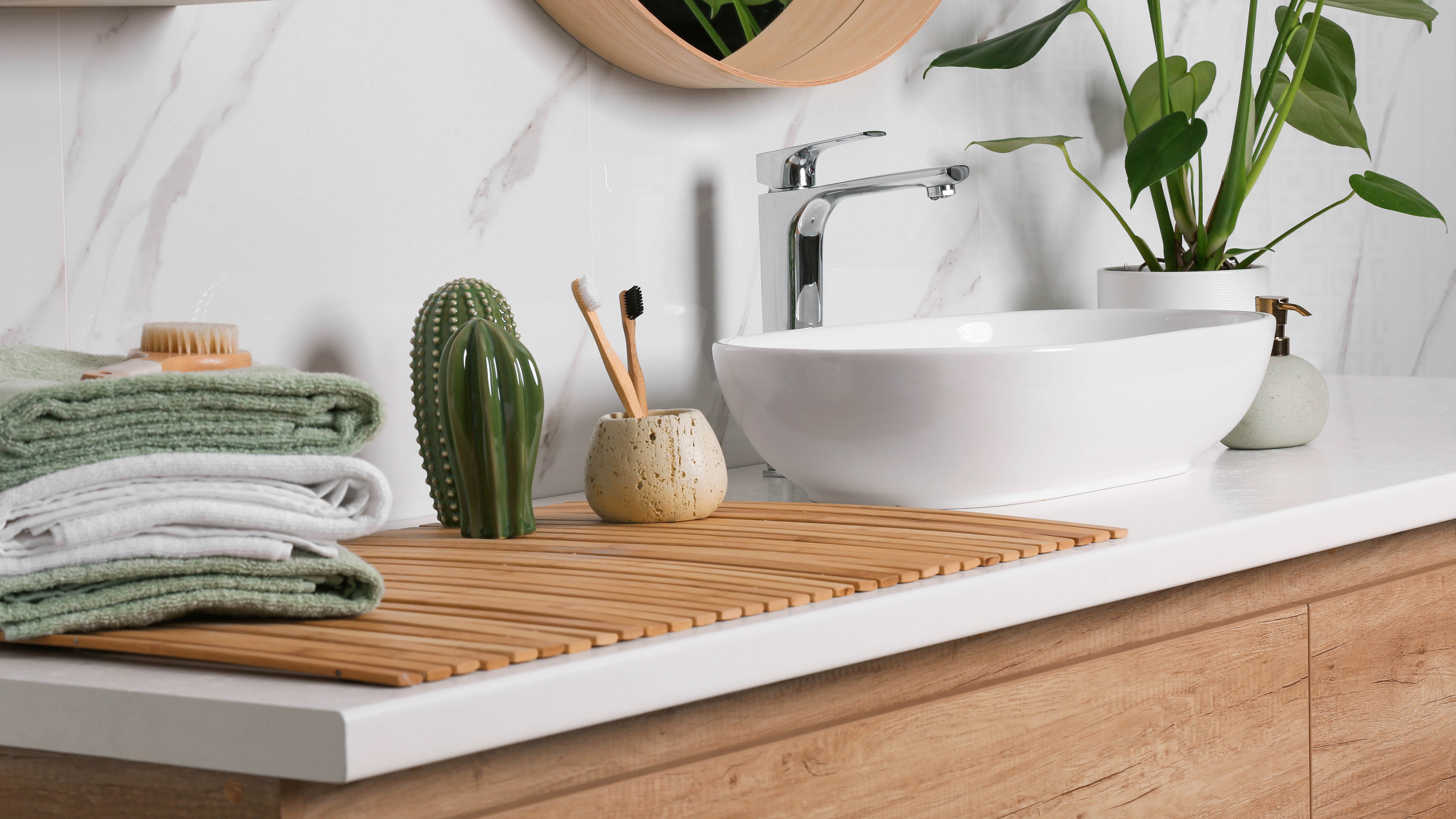
There’s nothing worse than opening the bathroom door to be greeted by an unpleasant smell. This is all the more frustrating when you know guests will be arriving shortly. Wafting the space with fresh air can only get you so far on short notice, but there are ways to keep your bathroom smelling fresh in the future, so you won’t have to worry about such a situation again.
A bathroom can be filled with all kinds of unpleasant smells. There’s the usual residual toilet aromas, but there can also be mold and mildew growing in this space which can contribute a musty scent. Even unclean items such as toilet seats, toilet brushes and trash cans will make an impact. Whatever smells you’re facing, we’ve listed 7 tips here to eradicate all of them and get a great-smelling bathroom around the clock.
Does your bathroom look cluttered? Here are 7 things you should never store in your bathroom — but probably are. And Romeo Beckham’s luxe bathroom is 'modernity meets tradition' according to experts. .
1. Apply fragrances
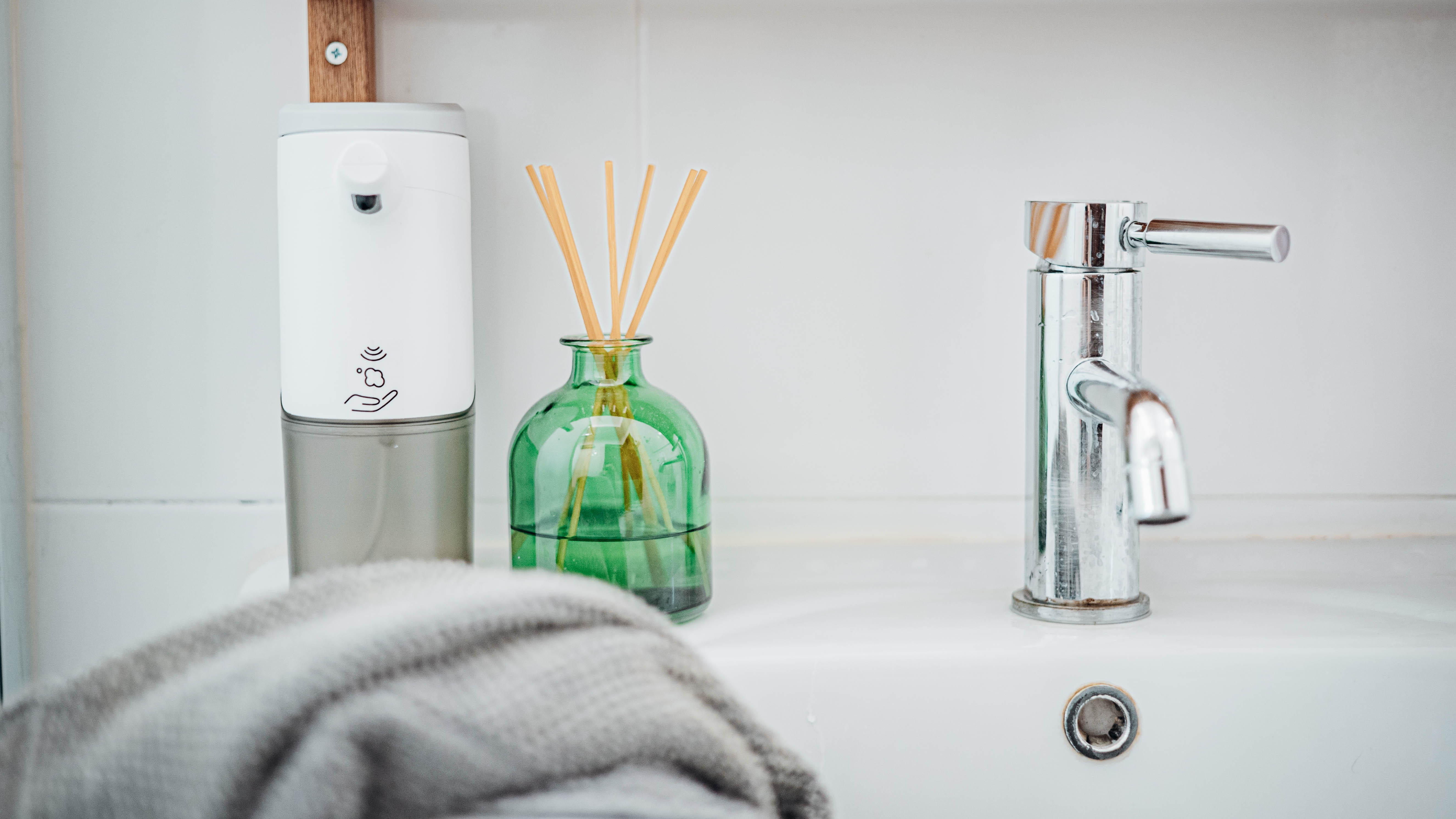
First of all, you can apply products to mask the unpleasant smells. One of the ones we recommend is Poo-Pourri Before-You-Go Toilet Spray ($9, Amazon). Simply spritz this into the toilet water before you, well… go, and your chosen fragrance will mask any lingering aromas. There are also toilet bowl cleaning solutions which claim to freshen as they clean, such as this Lysol Automatic In-The-Bowl Toilet Cleaner ($3, Amazon).
You can also use generic air fresheners and diffusers in your bathroom to release an ongoing scent. Essential oils work well here too — simply dilute a few drops of your chosen oil with water and spritz around the space as needed. Opt for obvious fragrances with your shampoos and shower creams too; even these can linger and contribute to a pleasant bathroom.
2. Ventilate the space
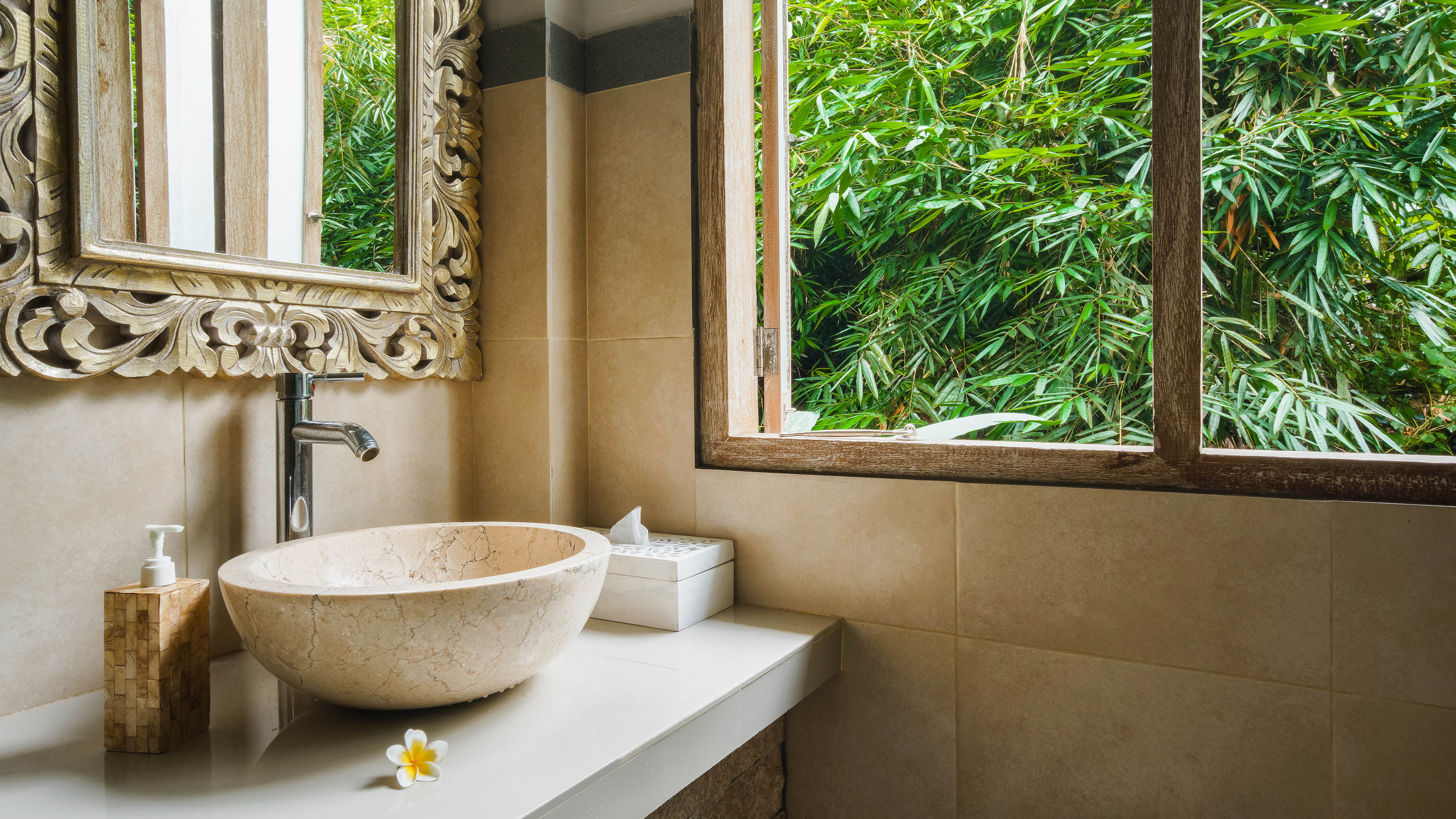
Ventilating your bathroom is always the solution if there’s a temporary unpleasant aroma. It can also help reduce humidity levels after showering or bathing, preventing mold and mildew from developing. Mold produces a musty aroma, and if the spores are breathed in excess, it can cause allergies and respiratory health issues. So it’s essential that any residual moisture is vented effectively — you can always rely on one of the best dehumidifiers for support.
To remove everyday smells and residual moisture, open up windows and doors to let fresh air in. Ventilation is more effective if there's a breeze as well, so try to create a cross-breeze where you can by opening up multiple windows. You could also set up fans to help move the air too. Don’t forget this won’t solve the problem unless the residual smell is only temporary. If the smell lingers, you will need to deal with the source to fully eradicate it.
Sign up to get the BEST of Tom's Guide direct to your inbox.
Get instant access to breaking news, the hottest reviews, great deals and helpful tips.
3. Rotate and clean your towels
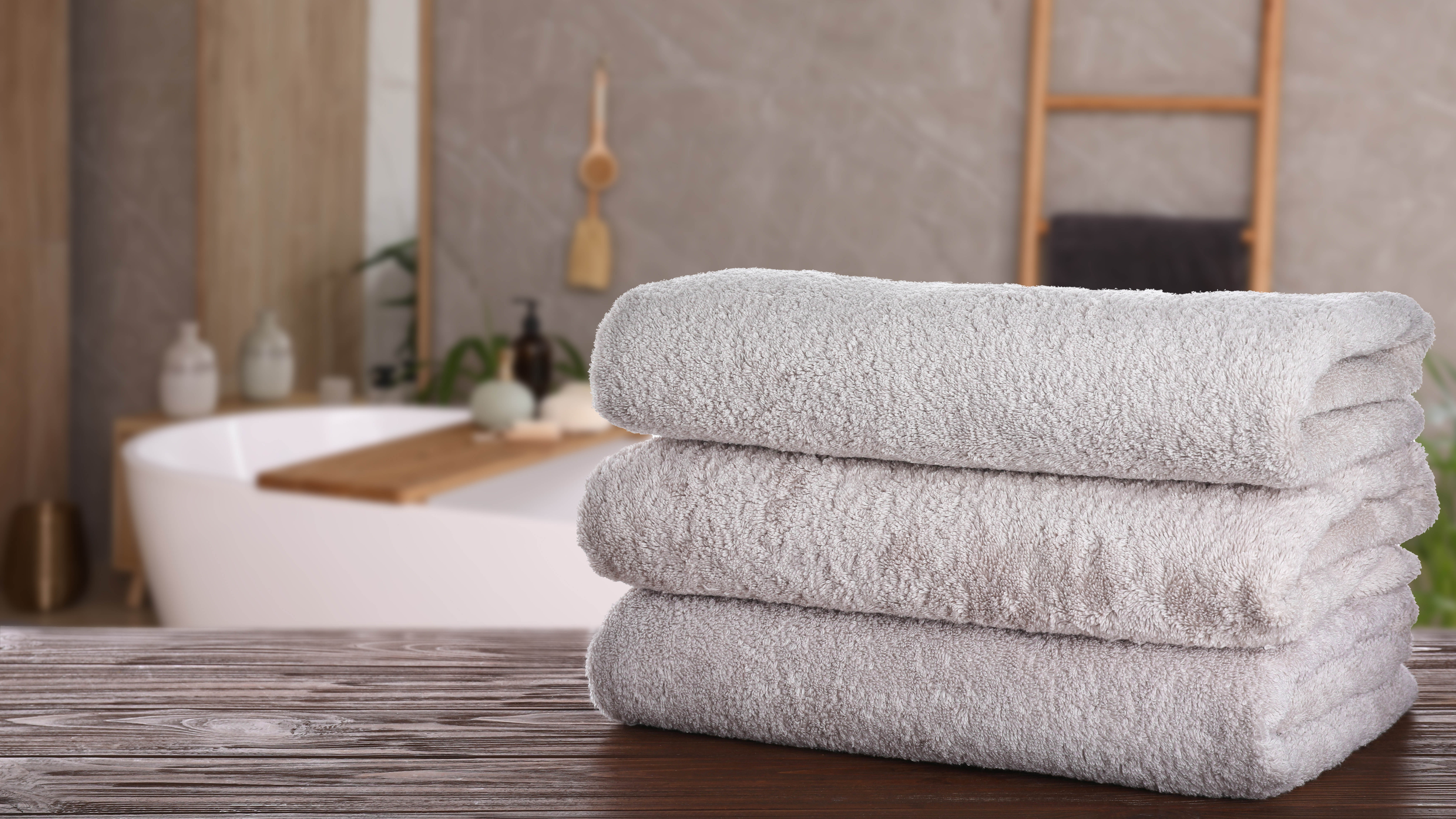
If you’ve ever washed your hands and noticed that they still smell afterwards, it’s likely because your towels need refreshing. While some towels claim to be quick-drying, they will still grow moldy over time. It’s only natural when you consider the damp and warm environment they provide. Should you forget to wash your towels, they can quickly grow musty, filling your bathroom with that same unpleasant smell.
We recommend washing your bath towels every week for best care and to remove this musty smell. Wash them separately from your regular load and leave out the fabric softener so as not to impair the absorbance. For more information, check out how to wash towels and keep them fluffy. Don’t forget to wash the bath and toilet mats too — not only can these grow moldy, but they can contain residual urine, which isn’t hygienic. Wash once a week to keep these items fresh. These are some of the 9 gross things you forget to clean around your home.
4. Clean the drains
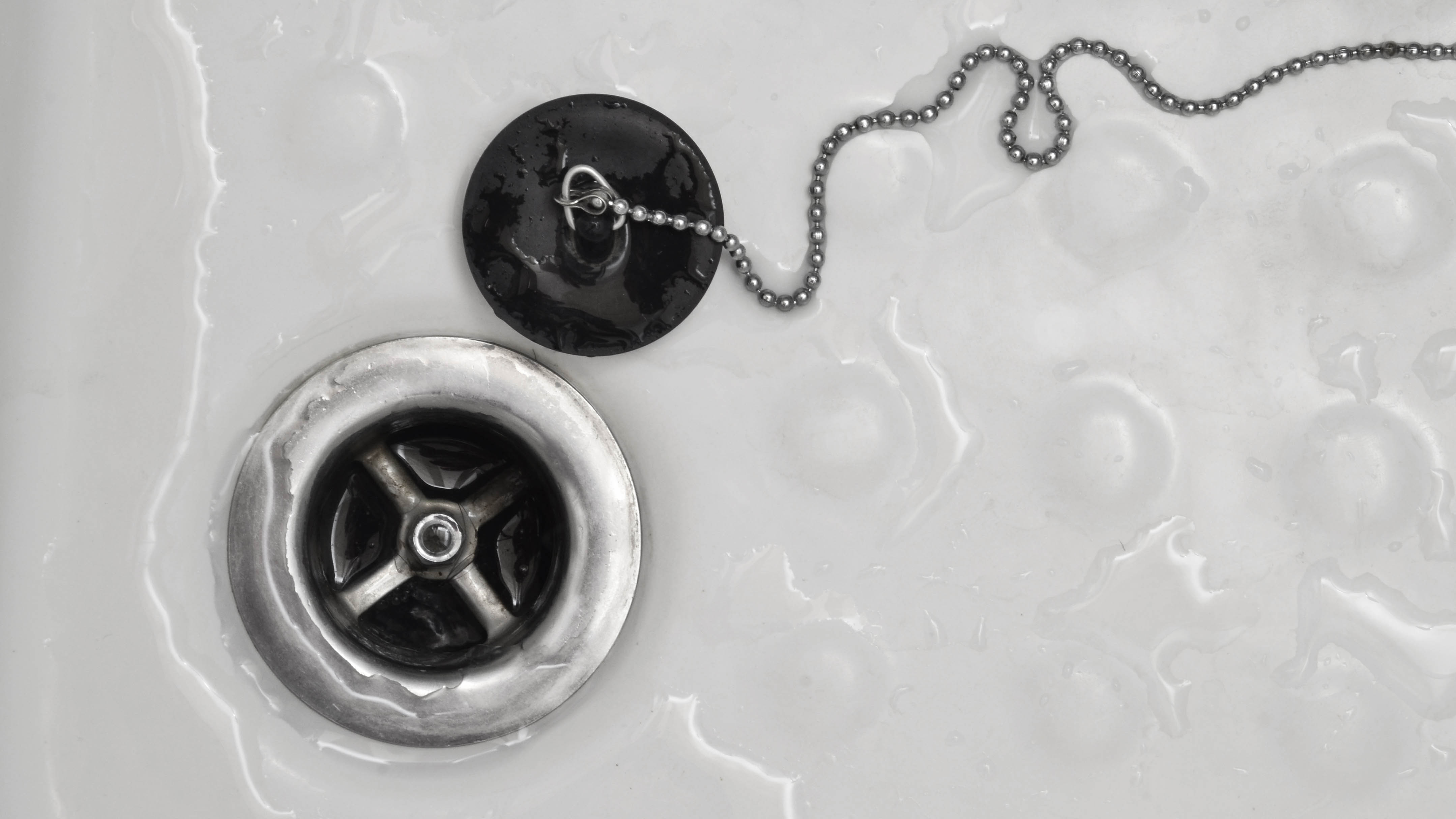
A blocked drain can produce a seriously unpleasant smell, so strong that it can linger in your bathroom and leave you questioning the source. Residual hairs, soap and debris often contribute to a blockage, and once it sticks the smell will only grow worse over time — likening to that of rotten eggs. If the smell doesn’t give it away, a blocked drain can also be indicated by water failing to drain as quickly. So while showering, you can easily end up standing in a puddle.
You should address a blocked drain as soon as possible — the longer you leave it, the more debris can build up. You can usually deal with this issue yourself, but there’s the option to call in a professional should you choose too. There are several methods to remove a blockage including drain snakes, chemical treatments, plungers and a baking soda/vinegar application. You can also prevent such a blockage in the future by purchasing a drain catcher, such as this Gotega Hair Catcher ($8, Amazon). Check out how to unclog a shower drain without a plumber for step-by-step instructions.
5. Fragrant plants
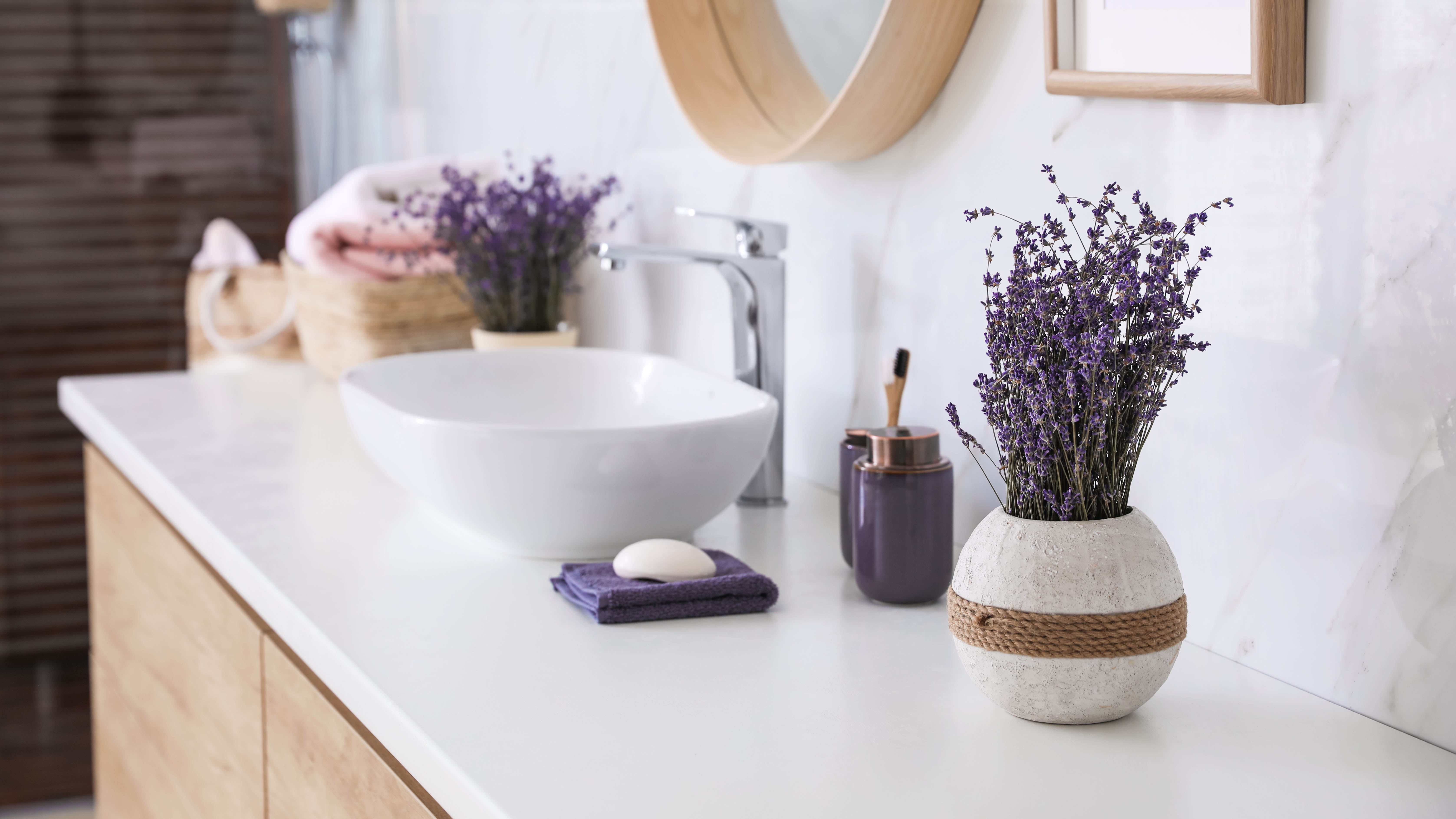
For added décor as well as a pleasant fragrance, why not turn to plants? Herbal varieties can produce an intense aroma to cover up any lingering smells, plus they have further uses around the home too. Lavender for instance can be cut, dried and placed in sachets to spread the fragrance in your wardrobes and drawers. While mint can be harvested for use in the kitchen. These plants also happen to have pest deterring properties too. Check out 7 plants that keep mice and rats from invading your home and 7 plants that repel roaches for a bug-free home for more inspiration.
Of course, not every plant will survive in a bathroom if it’s lacking light, but there are still 7 plants that can survive without sunlight to consider. These won't provide the necessary fragrance though, so you might want to turn to essential oils instead.
6. Empty the trash
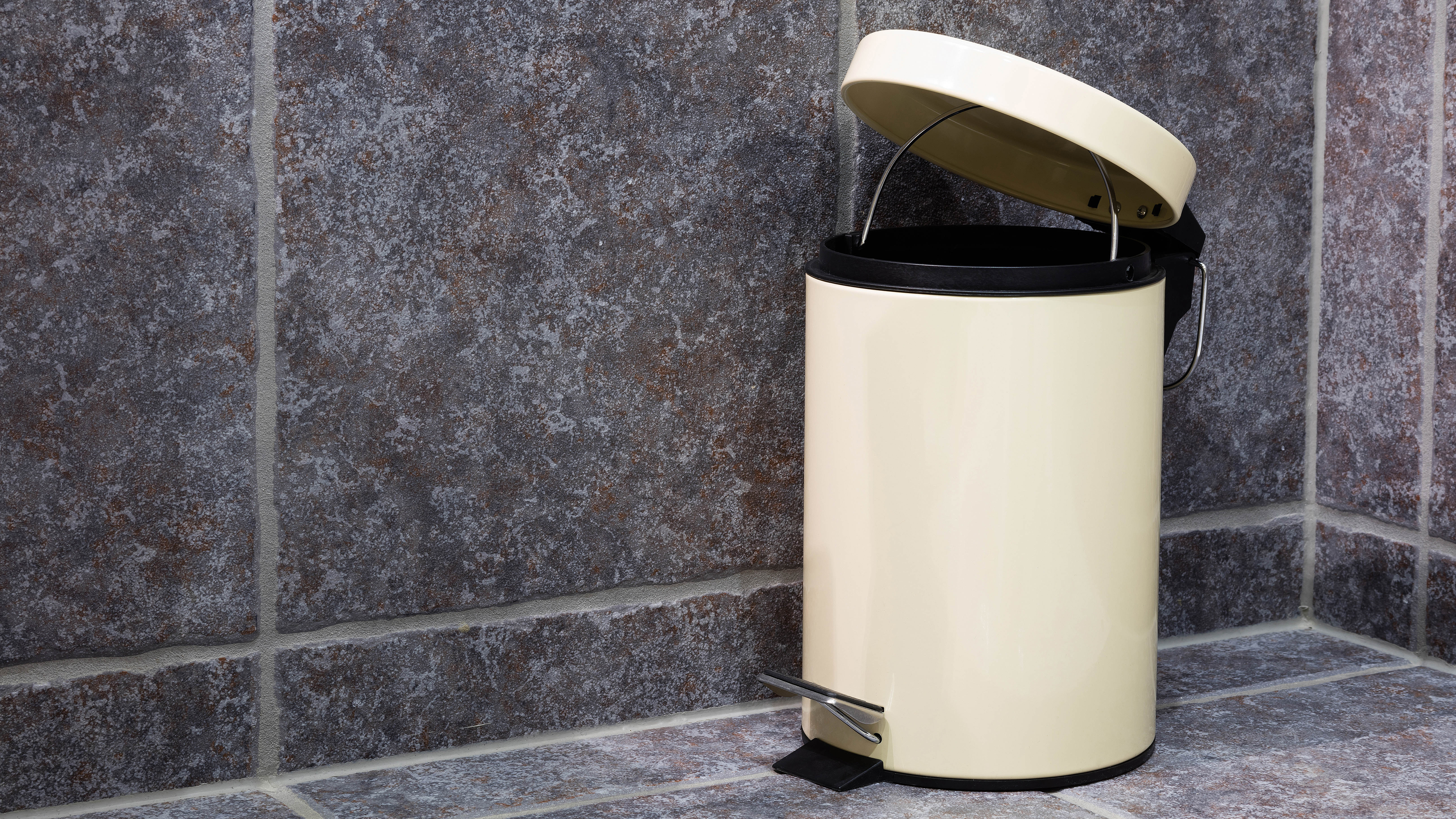
If the trash can in your bathroom is seldom used, or it only contains smaller items, such as cotton swabs or make-up remover wipes, it can take a long time to fill. The problem with this is that residual smells can build up before it’s finally emptied. Make sure you empty your trash can regularly — a few times a week is usually enough — but more often may be required depending on the contents. Don’t let this trash can sit overfilled either; it will soon contribute to a smelly bathroom, particularly if it’s an open-top container.
If liquids have spilled in the base of your bathroom trash can, this can promote bacterial growth and smells which will linger even after it’s emptied. Clean the container as and when necessary to remove such liquids and spills. Small trash bags can help contain these messes and make emptying easier, such as these 1.2 Gallon Small Trash bags Biodegradable Mini Bathroom Garbage Bags ($13, Amazon).
7. Keep your bathroom clean
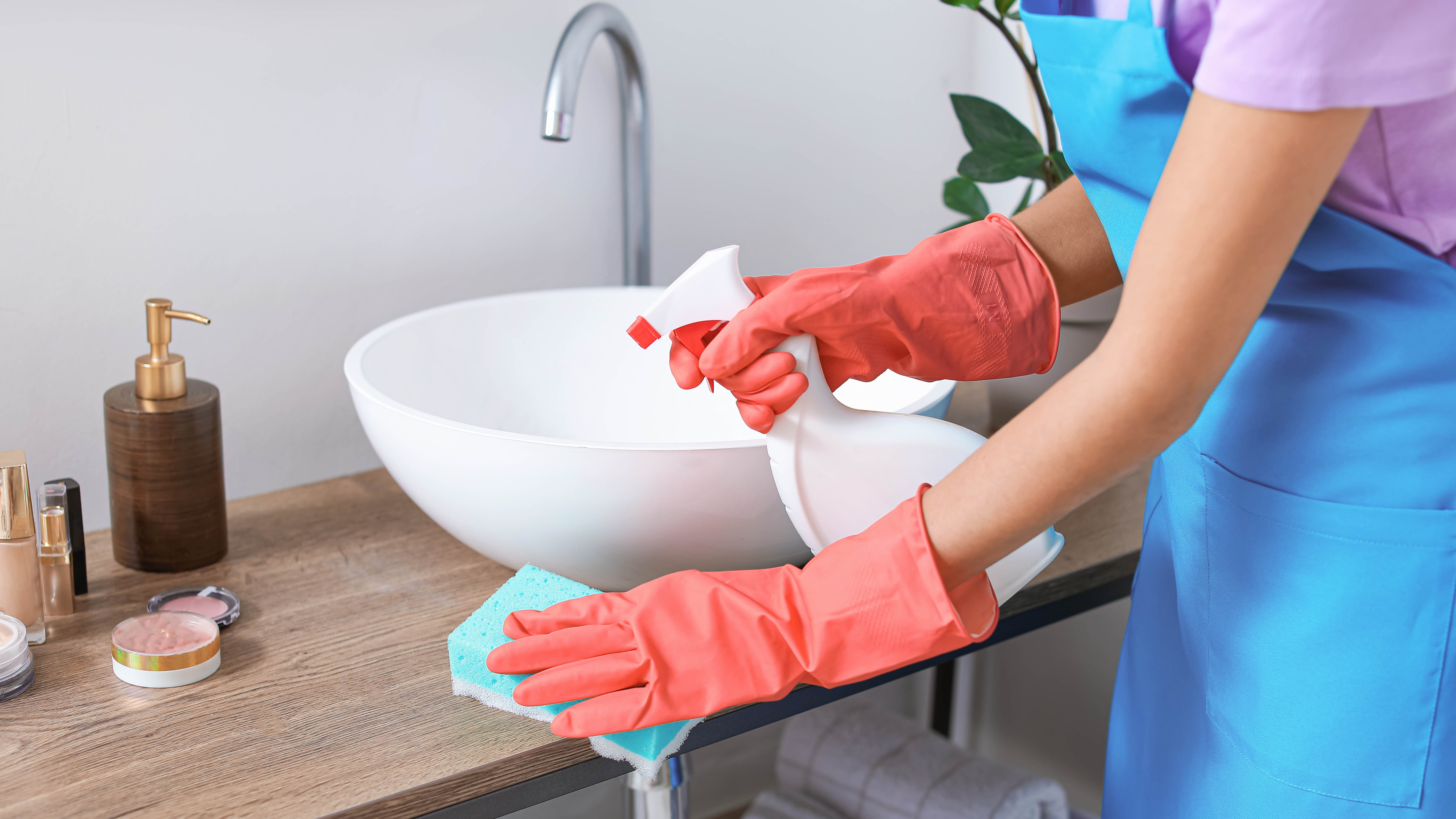
Of course, the key to a nice-smelling bathroom is keeping it clean. That means taking the time to clean the toilets on a weekly basis, both under the seats and in the bowl, as well as removing mold as and when it appears in your shower. Need to know how to get rid of mold — we’ve found the best methods.
You will need to keep less obvious areas clean to promote a fresh-smelling bathroom too. This includes your toilet brush. As gross as it is, you need to empty any residual water from the container and clean both it and the brush weekly. To clean the brush, rinse it with clean toilet water, disinfect it, and then rinse it with hot water. Remember to replace your toilet brush every six months as a rule of thumb too. Forgetting to clean your toilet brush is one of the 7 common mistakes making your bathroom dirtier.
If you’re using a shower curtain, this will need washing regularly too. As it’s constantly damp, it can easily be stained with mold and limescale over time. Some are machine-washable which makes this chore a little easier, but others may need to be washed by hand. For tips, see how to clean a shower curtain and get it looking like new.
More from Tom's Guide

Katie Mortram used to be a Homes Editor for Tom's Guide, where she oversaw everything from kitchen appliances to gardening tools, as well as smart home tech. Specializing in providing expert advice for cleaning and home manintenance, she now works as Household Advice Editor for Good Housekeeping.
